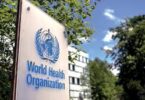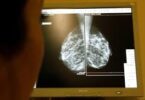(Web Desk) – Researchers at the University of Cambridge have established a comprehensive collection of human breast cells. They have identified early cell changes in healthy individuals carrying mutations in the BRCA1 and BRCA2 genes.
This discovery holds promise for potentially preventing breast cancer without resorting to surgery for those with these genetic mutations, as suggested by Walid Khaled.
While BRCA1 and BRCA2 genes are present in all individuals, mutations in these genes significantly increase the risk of breast and ovarian cancer.
The study revealed that immune cells within the breast tissue of healthy women with BRCA1 or BRCA2 mutations are impaired, rendering them incapable of eliminating damaged breast cells, which could lead to cancer development.
This marks the first instance where “exhausted” immune cells have been extensively identified in healthy breast tissues by researchers, a phenomenon typically associated with advanced cancer.
The implications of these findings suggest that early intervention with immunotherapy drugs may be a viable strategy to prevent breast cancer in individuals with BRCA1 and BRCA2 mutations.
Professor Walid Khaled from the University of Cambridge said, “Our results show that in people with BRCA mutations, the immune system can’t kill damaged breast cells. Those cells seem to be stopping the immune system from working.”
Khaled stated, “We’re excited about this discovery as it hints at a potential new approach to prevent breast cancer in individuals with BRCA gene mutations without resorting to surgery.”
By emphasizing the significance of utilizing drugs that target immune cell dysfunction, a strategy not previously considered for preventive measures.
Published in Nature Genetics, the study sheds light on the complexities surrounding risk-reducing surgeries, particularly concerning their impact on body image and relationships, especially for young women.
Walid Khaled stressed the significance of comprehending the early stages of breast cancer to effectively intervene, underscoring the challenges in treating advanced tumors due to their unpredictable nature.
Analyzing breast tissue samples from 55 women across different age groups, the research identified over 800,000 cells, providing valuable insights into various breast cell types and potential intervention strategies.
The Human Breast Cell Atlas, serving as a crucial tool for researchers, now offers insights into diverse risk factors for breast cancer, including body mass index (BMI), menopausal status, contraceptive usage, and alcohol consumption.
According to Austin Reed, a doctoral student at the University of Cambridge, the atlas reveals how different breast cell types undergo changes with pregnancy and age, influencing breast cancer susceptibility.
Expanding global data collection can enhance our understanding of breast cancer development and associated risk factors, with the goal of improving treatment approaches.
Breast cancer presents complexities due to numerous genetic variations and interactions with other risk factors. For instance, while advancing age escalates breast cancer risk, early pregnancy diminishes it.
However, carriers of BRCA1 and BRCA2 mutations face heightened age-related risks.
The study aimed to elucidate how various factors influence breast cancer risk by examining different cell types within the human breast under diverse conditions.
Utilizing a single-cell RNA-sequencing technique, researchers identified distinct breast cell types and their functions based on the genes active in each cell.
Dr. Sara Pensa, a Senior Research Associate at the University of Cambridge, stressed the importance of prevention in addressing global disparities in breast cancer and enhancing outcomes, particularly in low-income regions.







